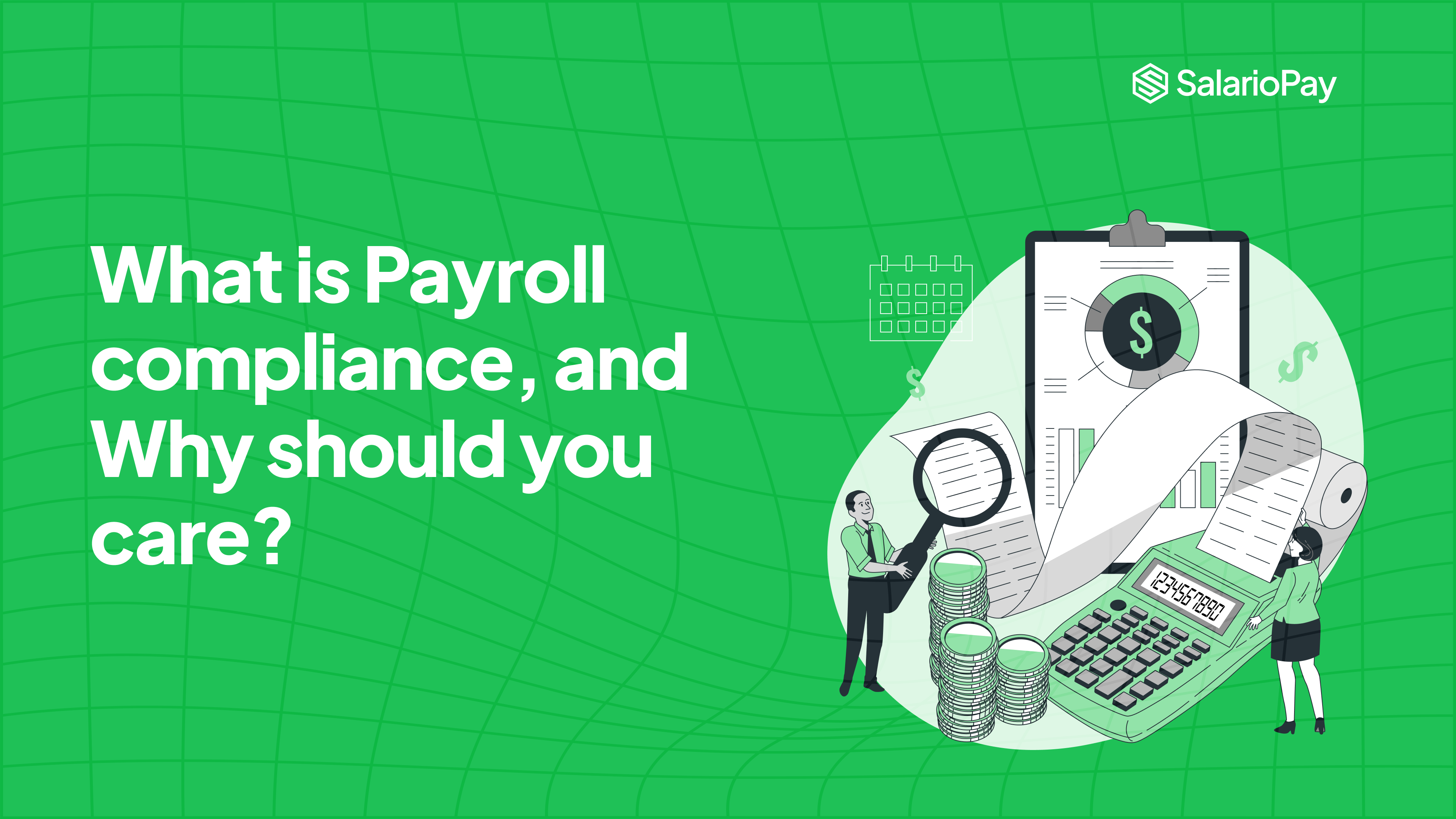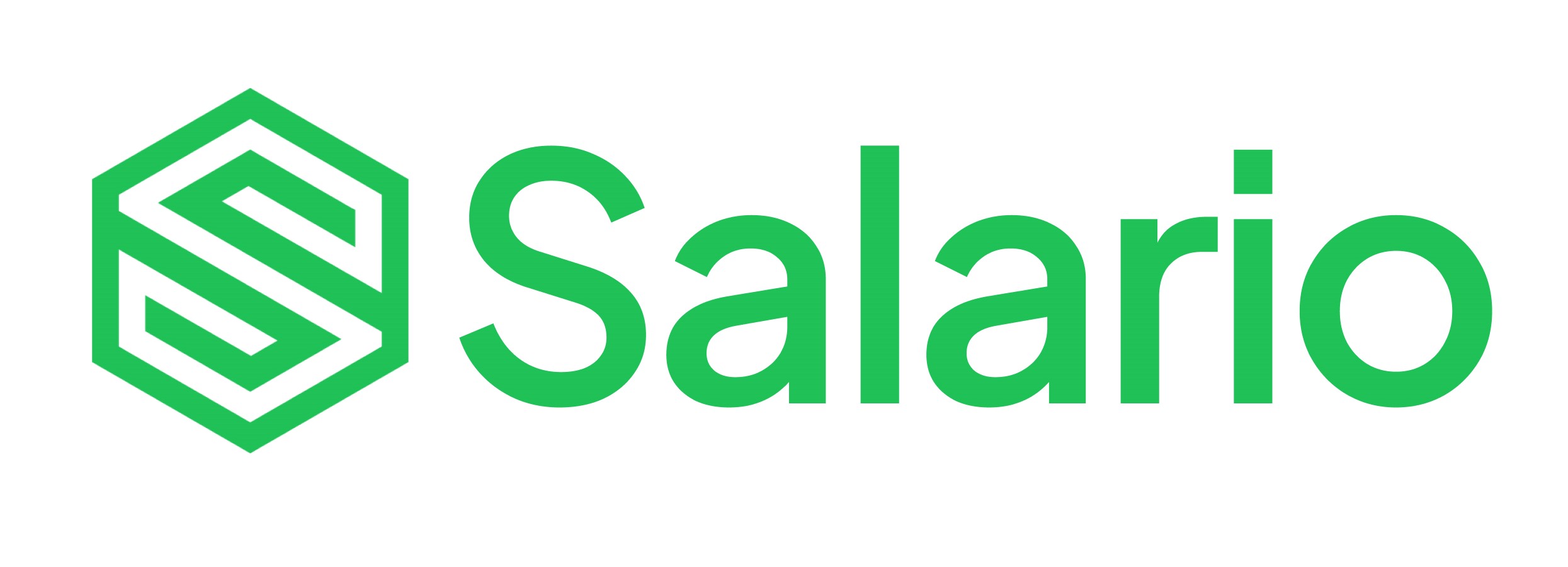
You just paid out salaries after you had a great financial month, and before the close of the day, security agents burst into your premises. Loud sirens are outside, and an armored truck is parked outside your gates, waiting to receive you at its rear end. This is unlikely to happen, but the consequences of not complying with payroll regulations are never the less dire, and you don’t want to be caught on the wrong side of the law. Nevertheless, let’s address the elephant in the room ‘What is Payroll compliance.’
What is payroll compliance?
Payroll compliance is the process of ensuring that your system of paying employee salaries, benefits, and other emoluments complies with federal, state, and local regulations in force. When these laws and regulations are ignored when servicing employee payments, a company can be fined or penalized depending on the type of regulations broken.
There are a host of laws in Nigeria that guide the activities of employers concerning their employees. Some of the key laws and regulations include;
- The Constitution of the Federal Republic of Nigeria (1999)
- The Nigerian Labor Act (Cap L1, LFN 2004)
- The Industrial Training Fund Act (ITF Act) Chapter 19, LFN 2004 (as amended)
- The Employee Compensation Act (ECA, 2010)
- Employees’ Compensation Act 2010
- Personal Income Tax Act, Chapter P8, LFN 2004 (as amended by the Personal Income Tax (Amendment) Act 2011).
Key Components of Payroll Compliance
The best way to avoid breaking compliance regulations and laws is to be aware of them. Nevertheless, there are some general components of these regulations that you have to keep in mind when complying with regulations and laws guiding employee payments.
Employment contract

An employment contract basically codifies the agreement between an employer and his employees. The government is not directly involved in the fine print of any employment contract, but there are regulations that stipulate some minimum requirements. A good example is in section 7 of the Labour Act, which states that an employer must provide his employees with a written contract within 3 months of an employment relationship. This is definitely something your HR should look into.
Accurate employee records
Employee records and data are vital for complying with relevant legislation. This helps to reduce ghost workers and helps governmental institutions properly classify your business. Data such as employee name, nationality, home address, relationship status, Tax Identification Number, and National Identification Number, among others, should be properly recorded and safely stored.
Minimum Wage
On June 3rd, 2024, the Nigerian Labour Congress embarked on a nationwide strike that grounded economic activities within the country. Why? because they wanted an increase in the national minimum wage. Currently, the minimum wage any employer should pay is 30,000.00. This is very important for those who manage the company’s payroll.
Timely coalition and submission of payroll information.
It is one thing to have relevant data and another to properly collate and submit it to relevant authorities. Sometimes, some data can only surface after the deduction of taxes and payment of salaries. Human resource managers should quickly organize the relevant data after each payment period for situations where they will be required.
Management of workplace pensions.
Pensions are an important perk for any employee, and a robust pension plan could easily make employees loyal crusaders for your brand and product. But what regulations guide that in Nigeria? The Pension Reform Act of 2014 stipulates that private companies with at least 15 employees should provide a contributory pension scheme for their employees.
Payroll Taxes
Employers are required by various laws to deduct certain percentages from an employee’s gross income as tax. There are different types of taxes employers are to deduct, they include:
- Pay-as-you-earn (PAYE) Tax: This tax ranges from 7% to 24% and is deducted based on the employee’s income.
- National Housing Fund (NHF) Contribution: This is fixed at 2.5% and is deducted to fund the National Housing Fund.
- Pension Contribution: This is an 8% deduction from the employee’s gross pay and 10% from the employer. It funds the employee’s pension account.
- National Health Insurance Scheme: This amounts to about 15% of the employee’s income, with 10% coming from the employer and 5% from the employee’s income.
Importance of Payroll Compliance

Now that we have highlighted some relevant payroll compliance components, how vital is it that you comply with payroll legislation? In essence, why should you care?
Legal Obligations
There are sanctions that accompany the failure to comply with payroll legislation. When you promptly adhere to regulations and laws on payroll compliance, you avoid the risk of unwanted fines and legal penalties. Compliance also saves you from the risk of legal actions from your employees.
Employee Satisfaction and Trust
Complying with payroll regulations helps build trust between your business and the government. It also helps preserve existing trust between your employees, your company, and its customers.
In complying with relevant laws, you will also pay your employees salaries promptly while accurately deducting taxes and paying out bonuses too.
Business Reputation
No one wants to work with a business that is constantly in the news for breaking the law. This goes for employees and potential clients alike. Promptly complying with relevant laws helps a company’s public perception.
Tips to Ensure Payroll Compliance
Ensuring payroll compliance is not just a noble agenda but a practical business decision for your business. That said, it is not always an easy task to do. Here are some ways to ensure that you are payroll-compliant at all times.
Use Payroll Software.
If you are still using manual payroll management systems, then it is high time you switched to Payroll software. Payroll software has many benefits, but one unbeatable benefit is that payroll software can automatically stay up-to-date with relevant laws and regulations guiding payroll compliance. It can also help you make the necessary calculations when deducting taxes and paying salaries.
Keeping Accurate Records
Employee records are the lifeblood of an effective payroll system. Keeping accurate and up-to-date records can prevent errors such as misclassification of employees, missing absentees and overtime, and other errors. Accurate records also make it easy to comply with any filing requirements from government agencies. A good payroll software can make this process easy.
Make a payroll compliance checklist
A payroll compliance checklist is useful for ensuring you follow all payroll laws properly. It allows you to approach each regulation and requirement in a systematic manner, saving time by eliminating repetitive research and assisting in the prioritization of key activities. Regularly updating and implementing a checklist ensures that payroll activities are accurate and conform to current legislation. Furthermore, it gives the a record of performed work, which can be essential during audits, helping you stay organized and comply with payroll requirements.
Regular Audits and Reviews
Conducting regular internal audits can help you organize your financial data properly, allowing you to spot inconsistencies and ensure that your records are straight. When audits are done right, you can track how well you have complied with relevant tax laws and other regulations. You should also involve external auditors for unbiased financial reviews. Often these external auditors are professionals and know what to look for to keep your company payroll compliant.
Challenges in Payroll Compliance

Staying compliant is not easy, and there are times when certain challenges make it difficult. Here are some challenges and what you can do to maintain payroll compliance.
Complexity of Regulations
Many regulations are easy to understand, but that’s not always the case. If you do not have a background in law or finance, you might get stumped by the phrasing of some legislation. The modalities for PAYE Tax, for example, can be a tad bit complex for those without any background in taxation, making compliance difficult.
Taking your time to understand complex regulations is the key to compliance in this case. If you do not have the time, you can hire an expert to help interpret the laws and regulations.
Managing International Payroll
Managing international payroll can be tedious, as you will be dealing with compliance legislation and currencies across the globe. If you think misunderstanding one local law is a problem, try adding 10 more international and local laws.
Using payroll software that provides for international clients can reduce this burden. The software instantly updates laws and interprets local laws based on expert opinions in those areas.
Keeping Up with Changes
Laws are not static, and as they change, the standards of compliance change with them. If the Nigerian government eventually changes the minimum wage, then companies will have to make the necessary adjustments to stay compliant.
Having good payroll software can help you keep in touch with changing laws without stressing you out.
Conclusion
Payroll compliance is vital for the continued success of any business. Besides its legal implications, a company that is payroll compliant easily becomes an attractive prospect for the best talent and clients. This is because it more easily creates the basic idea that it puts its employees first and is responsible to the government, too.
Small and large companies should make it a duty to keep proper records and comply with the relevant provisions of the law concerning employee payments and taxation. Payroll management tools like Salario make it easy to comply with payroll regulations, keeping your business on the right side of the law.

[…] and things can get worse if you are dealing with international hires. Staying up-to-date with payroll compliance is a dreaded task for payroll managers and human resource personnel it involves a lot of digging […]